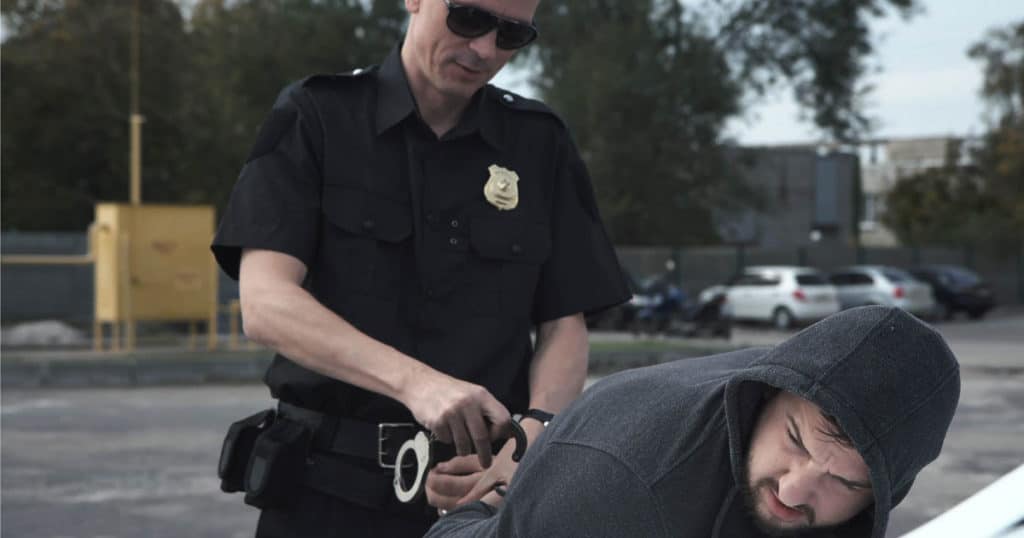All Your Questions Answered About Nevada Entrapment Laws

You may have heard of the term “entrapment” before, but what does it actually mean? Entrapment is a legal defense used to get out of criminal charges. It occurs when law enforcement officials induce or encourage someone to commit a crime they would not have otherwise committed. In other words, entrapment happens when the police go too far in their efforts to catch criminals.
In this article, we’ll review the law on entrapment in Nevada. We’ll discuss what constitutes police entrapment and provide examples of entrapment, as well as explain the difference between an entrapment defense and a sting operation. We’ll also review the objective and subjective standards used to determine entrapment in Nevada, as well as answer some questions you might have about police entrapment.
What Is Police Entrapment in Nevada Law?
In Nevada, police entrapment (or just entrapment) is defined as when a law enforcement officer induces or encourages another person to commit a crime that he or she would have otherwise not committed.
In other words, entrapment occurs when these two elements are present: inducement by law enforcement and lack of predisposition on the part of the accused to commit the crime.
Entrapment Examples
While entrapment can happen in a variety of ways, they are typically associated with prostitution, drug crimes, and child pornography. Some common examples include:
Offering to buy drugs from an accused person who had no intention of selling them
This example is quite common in cases of entrapment. In this scenario, an undercover officer approaches someone and asks to buy drugs. If the person has no prior history of drug dealing but agrees to sell the drugs because they felt pressured or coerced by the officer, then they could potentially claim entrapment.
Telling someone who is not a prostitute that you will pay them for sex
This example occurs when an undercover officer approaches someone who is not a prostitute and tells them they will pay them for sex. If the person agrees because of the pressure exerted by the officer, entrapment could be claimed in a criminal prosecution case.
Entrapment Vs Sting Operation
It’s also important to understand the difference between an entrapment defense and a sting operation. A sting operation is when law enforcement officers use undercover agents or informants to catch criminals in the act of committing a crime. In contrast, entrapment is when law enforcement officers go too far in their efforts to catch criminals.
For example, a policewoman dresses as a prostitute and stands on a street corner. If a man approaches her and offers to pay for sex, this is not entrapment because the man was already predisposed to commit the crime. However, if the policewoman offers him money for sex first, then it could be considered entrapment.
Entrapment as a Defense
In order to successfully make an entrapment defense in Nevada, you must prove that the police officer induced or encouraged you to commit a crime that you would have otherwise not committed.
Both objective and subjective standards are used to determine whether entrapment has occurred. Let’s take a look at this in further detail:
Objective Standard
Using the objective standard, the criminal suspect’s mental state is irrelevant – all that matters is whether law enforcement officials used tactics that would have tempted any reasonable person to commit a crime. As such, their prior criminal record has no bearing on this and cannot be presented as evidence in court.
For example, a hooker with a long history of “hustling” was offered 1 million dollars for sex by an undercover officer. Even though she was predisposed to commit the crime, the offer of large sums of money could have tempted any reasonable person into committing a crime – and thus, it would be considered entrapment under the objective standard.
Subjective Standard
Using the subjective standard, the focus is on whether the criminal suspect was predisposed to commit a crime prior to any inducement from law enforcement. In other words, if the person was already planning or willing to do something illegal before being offered money by an undercover officer – then it would not be considered entrapment.
For example, if an undercover officer offered a drug dealer $500 for cocaine and the dealer agreed, this would not be considered entrapment because the dealer was already predisposed to commit the crime.
Do You Think You’ve Been a Victim of Police Entrapment?
Ultimately, if entrapment has occurred, then this is considered a valid legal defense and can result in the dismissal of criminal charges. It’s important to understand your rights as a defendant and seek legal counsel if you believe you’ve been wrongfully charged with a crime due to entrapment. An experienced criminal defense attorney can help you build a strong defense and fight for your rights in court.
The Defenders is a criminal defense law firm whose lawyers defend clients arrested or charged with DUIs, felonies, misdemeanors, domestic violence, sex crimes, murder, drug possession, white collar crimes and more than a dozen other criminal case categories.
What The Defenders Can Do For You:
- Investigate your case to determine all facts and circumstances surrounding the alleged crime
- Determine whether there was police error or misconduct, or you are being falsely accused
- Go over the strengths and weaknesses of your case with you to give you an idea of how your case will stand up in court
- Inform you of all the legal options available to you
- Offer guidance, support and sound legal advice
Prosecutors have a vast amount of resources available to them to find the necessary evidence to convict you.
The Defenders are well versed in the prosecution’s tactics and can help you counter them aggressively.
We have a number of creative options available to us that can convince the court to dismiss or reduce the charges against you, and we will use every resource we have to vigorously fight for your rights.
Frequently Asked Questions
What is police entrapment?
Entrapment occurs when law enforcement officials use tactics that would tempt any reasonable person to commit a crime. Both objective and subjective standards are used to determine whether entrapment has occurred.
How do I know if I’m a victim of entrapment?
If you believe the police officers used tactics that would have tempted any reasonable person to commit a crime, then you may be able to use an entrapment defense in court. It’s important to speak with an experienced criminal defense attorney who can investigate your case and help build a strong defense.
What should I do if I think I’ve been wrongly charged with a crime due to entrapment?
The first step is to contact an experienced criminal defense lawyer who can help you discover all the facts related to your case and determine whether entrapment has occurred. Your attorney will be able to provide sound legal advice, guidance, and support as well as inform you of all the available legal options.










